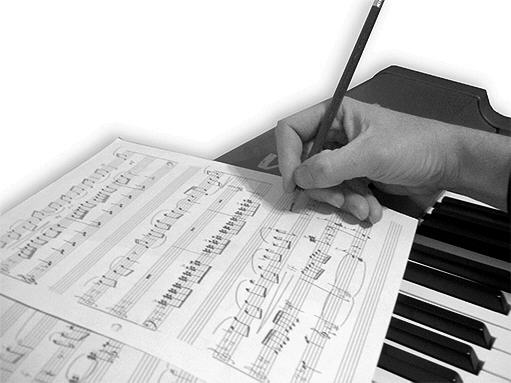
This topic came up earlier, in Jim's Tap The Knot post. I wanted to respond to it, but was very busy - luckily with a good thing - playing music.
T'any rate, I wanted to put in the good word for the so called "pre-composition". It is an integral part of my process in order to arrive at the final piece of music, so I must give it thumbs up. We have lost a commonality. To approach a new piece of music requires the jostling of many issues, at times conflicting. But I love the entire process of developing the sound of my new compositions and projects. It is there that we can play ideas of sound off ideas of philosophy - or choosing to make sonic relationships with other art objects, or natural subjects. It can intertwine with other performing, visual, or literary arts.
There are many things new in our time compared to "theirs". The full inclusion of all sounds, electronic processing, and highly developed tonal, rhythmic, and formal methods provide powerful new forces and sonic possibilities to the composer. But "pre-composition" is also deemed new. Well, it is true that composers of old had a more restricted palette shall we say. And because of this, we need to spend more time developing a musical syntax for our pieces - something that was already established, to a degree, for the composers of old. But, the system was very flexible, and large scale forms were realized that are hard to believe simply sprung off the pen. Even within the highly structured vocabulary functional tonality and traditional form, that Wagner did not "pre-compose" with the Ring, Bach with the Art of Fugue, Beethoven with the Pathetique Sonata, or Schubert with the Gmin Quartet.
Does the sculptor just sit down and start chipping at rocks? I suppose it is possible...but I would gather that paper sketches are the norm. Does the novelist just start writing? Or perhaps, do they develop characters and plot lines first? Don't you think it best that they develop the character, so the very first words about them come from a deep understanding of who they are, where they have been, and where they are going? Yes, the reader discovers the character, but should the author as well, at least to a degree. Can we not see the relation to this in music composition?
I would never say that pre-composition is a must do list. But under a certain kind of perspective, it is always there. The notes...the sounds come from their history.
Most often for myself, some kind of structural plan has been thought out - notated to a degree, but rarely complete - graphic at times, and others in words. Likely, some kind of pitch structure is established to form a basis - at times rigorous, others very loose. Orchestration is often mapped out, but, all relating to form. Form is key - it is the reason. Reason is key - it is the form.
There is also subjectivity and music. It can challenge parameters. Certain subjects need appropriate sounds and structures, and one bends or discovers new technique to realize it. The subjective impulse bears down on the objective realization, experimentation, trial and error. It takes study - comparative and contrasting.
This is a process I like to embrace, not be scared of. I find the western classical tradition is a powerful beacon through the murky waters. The richness and depth of it holds much to contemplate, and the ability to coordinate musicians by the score is if nothing else, fascinating. There are many exceptional figures in the cannon. The rigor it demands as a performer help increase facility and ear training. And yes, the functional tonal system is indeed, an incredibly potent development of the human conscious. There is much to learn from this system and how it was used, and how it has changed and evolved. I believe it's fundamental logic can reach to many people - it has a kind of universality in its expressiveness. Markets may not bear all this witness, but they show habits, not importance. And I also believe that the classical music traditions over the world provide great structures for musical learning and development - many rich traditions. There is so much to learn - again, not scary, but rather exhilarating.
Pre-composition is all of those stages that lead you to that note on the paper (dot on the screen). In the end, a choice must be made - but how was it made? To be a composer one is a composer. Ok, Jedi geek stuff, but, well, true. Embrace the journey to the composition. Love the work. Learn and explore in life and in music. "pre" Compose till your heart's content. Work out harmonic, melodic, rhythmic, formal structures etc - but always with a reason in mind, guiding the process. Lots of playing, singing, pacing, scribbling, walking, typing, doing. Work on ideas - develop or scrap them. Keep it flowing. The more you do, the better you get - it is essentially inevitable.
I have heard, in various incarnations, statements like "I think the problem with modern classical composers is they think too much".
Ummm...sorry...gotta go. Back to work.
Scott
8 comments